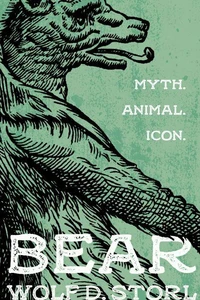Various studies have shown time and again that small organic farms and home gardens are capable of producing more food per acre with less fossil energy than large-scale commercial agricultural installations dependent on machines and toxic chemical fertilizers and pesticides. This classic book by Wolf D. Storl, a respected elder in the practice of permaculture, details how food is grown holistically and beautifully by traditional communities around the world, and shows how to apply their ancient wisdom to our own gardens.
With interest in natural, sustainable, organic and local food at an all-time high, people are looking beyond their farmers markets and CSA cooperatives to hyperlocal ways of growing healthy, delicious produce in urban gardens and their own backyards. Culture and Horticulture details time-tested methods that are as effective today as they were hundreds of years ago. On the practical front, the book works as a manual for creating and maintaining a bountiful harvest.
It explains how to build the soil to maintain fertility; how to produce compost; how to plant, sow, and tend the various fruit and vegetable plants; how to rotate crops and practice companion planting; how to set up a favorable microclimate; how to deal with so-called weeds and pests; how to harvest at the right time; and finally how to store vegetables and herbs. Special emphasis is given to the art and science of composting, the compost being the "heart" of any self-sufficient garden and a model for the cycle of life, death, and rebirth.
At the same time the reader is introduced to the wider aspects of horticulture, to its historical, philosophical, and cosmological contexts and social relevance. Gardening is a cultural activity, shaped by peoples' thoughts, wishes, and needs as well as by their cultural traditions. The author, an anthropologist by profession who has investigated the gardening practices of indigenous people throughout the world and worked for many years on biodynamic farms and in his own food garden, will introduce the reader to Rudolf Steiner's vision of the garden as an organic unit, embedded in the context of terrestrial and cosmic forces.
Storl explains the importance of cosmic rhythms (solar, lunar, and planetary), the role of biodynamic herbal preparations as "medicines" for the garden organism, and the so-called "etheric" and "astral" forces. The book presents a vision of the garden as seen through the eyes of "Goethean science, " a magical place where alchemical transformations of material substances take place.
Various studies have shown time and again that small organic farms and home gardens are capable of producing more food per acre with less fossil energy than large-scale commercial agricultural installations dependent on machines and toxic chemical fertilizers and pesticides. This classic book by Wolf D. Storl, a respected elder in the practice of permaculture, details how food is grown holistically and beautifully by traditional communities around the world, and shows how to apply their ancient wisdom to our own gardens.
With interest in natural, sustainable, organic and local food at an all-time high, people are looking beyond their farmers markets and CSA cooperatives to hyperlocal ways of growing healthy, delicious produce in urban gardens and their own backyards. Culture and Horticulture details time-tested methods that are as effective today as they were hundreds of years ago. On the practical front, the book works as a manual for creating and maintaining a bountiful harvest.
It explains how to build the soil to maintain fertility; how to produce compost; how to plant, sow, and tend the various fruit and vegetable plants; how to rotate crops and practice companion planting; how to set up a favorable microclimate; how to deal with so-called weeds and pests; how to harvest at the right time; and finally how to store vegetables and herbs. Special emphasis is given to the art and science of composting, the compost being the "heart" of any self-sufficient garden and a model for the cycle of life, death, and rebirth.
At the same time the reader is introduced to the wider aspects of horticulture, to its historical, philosophical, and cosmological contexts and social relevance. Gardening is a cultural activity, shaped by peoples' thoughts, wishes, and needs as well as by their cultural traditions. The author, an anthropologist by profession who has investigated the gardening practices of indigenous people throughout the world and worked for many years on biodynamic farms and in his own food garden, will introduce the reader to Rudolf Steiner's vision of the garden as an organic unit, embedded in the context of terrestrial and cosmic forces.
Storl explains the importance of cosmic rhythms (solar, lunar, and planetary), the role of biodynamic herbal preparations as "medicines" for the garden organism, and the so-called "etheric" and "astral" forces. The book presents a vision of the garden as seen through the eyes of "Goethean science, " a magical place where alchemical transformations of material substances take place.

 , qui est-ce ?
, qui est-ce ?